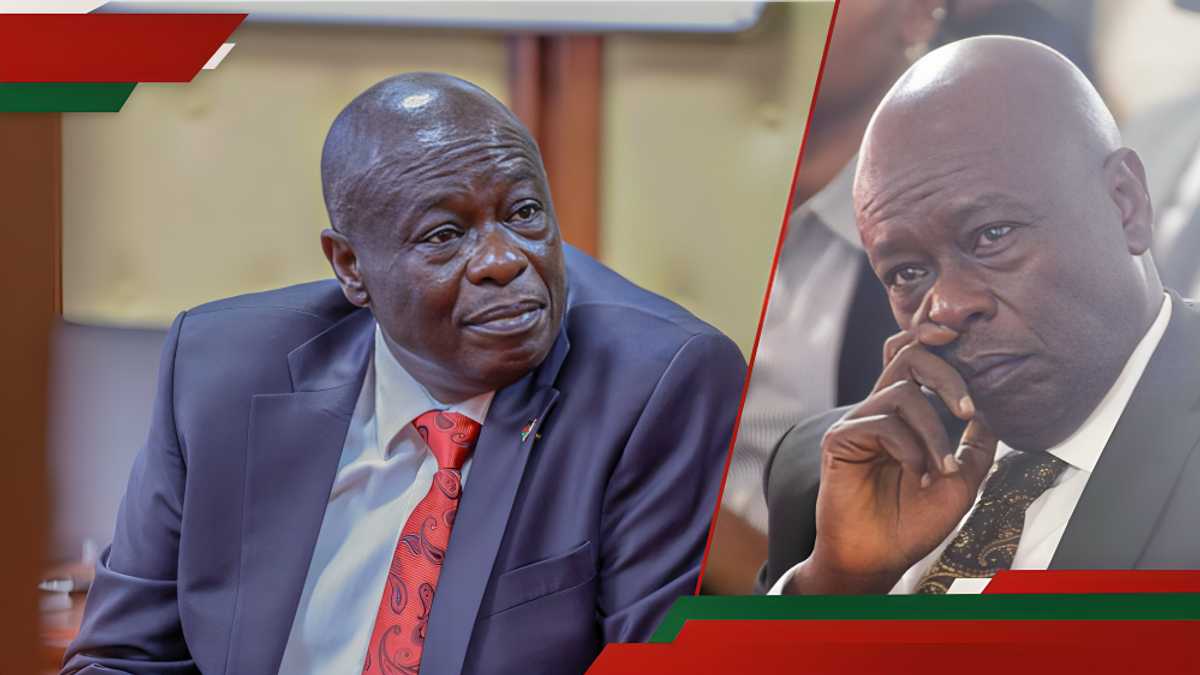-
The Employment and Labour Relations Court supported the termination of employment for 61 contractual employees from the previous office of Deputy President Rigathi Gachgua.
-
Justice Hellen Wasilwa indicated that the employees had fixed-term contracts directly linked to Gachgua’s term and could not anticipate their continuance following his removal.
-
The petitioners, headed by attorney Suyianka Lempaa, contended that the dismissals were driven by political motives and did not follow proper procedures. However, the court dismissed these claims.
-
The court clearly differentiated between staff members with permanent positions, asserting that they ought to be kept employed or reassigned.
Didacus Malowa, a journalist with .co.ke, comes with more than three years of expertise in reporting on politics and contemporary issues in Kenya.
The Employment and Labour Relations Court located in Nairobi has rejected a petition contesting the termination of 61 workers who were employed in the office of ex-deputy president Rigathi Gachgua.

The court confirmed that the employee’s contracts were terminated legally following his impeachment in October 2024.
According to Judge Hellen Wasilwa’s ruling, the employees were not considered as unfair dismissals; instead, they had been employed under fixed-term contracts directly linked to Gachgua’s period of service.
The court ruled that their positions depended on the former deputy president remaining in office, and upon his impeachment, the legal foundation for their employment no longer existed.
As evidenced by Judge Wasilwa, it is evident that these 61 officers were serving under locally agreed-upon conditions, with their contracts tied to the term of office of Deputy President Rigathi Gachagua, who has now been removed from power according to the presented testimony.
Why was the removal of employees from Gachagna’s office contested?
The lawsuit was initiated by Nairobi-based attorney Suyianka Lempaa together with the Africa Centre for Peace and Human Rights.
The individuals who initiated the petition contended that the large-scale dismissal of employees was illegal, driven by political motives, and constituted a breach of fair labor standards as well as human dignity.
As per their view, these dismissals penalized civil servants due to political strains between Gachagna and President William Ruto, essentially involving impartial administrators in political conflicts.
Lempaa told the court, “Civil servants should not bear the brunt like blades of grass when prominent politicians clash.”
He contended that the dismissals, which were carried out after employees received texts instructing them to pick up their termination notices, lacked both a prior disciplinary procedure and adherence to official redundancy protocols.
Why might Gachagna’s employees have been unable to keep working?
However, the court dismissed these claims, determining that the staff deliberately entered into agreements tied to Gachagna’s tenure.
Justice Wasilwa stressed that there was no legal requirement to keep or reallocate contractual employees after their appointing authority, Gachagna, was removed from office.
She clarified that they endorsed the pact to serve throughout the term of the previous Deputy President, hence they are not at liberty to deviate from this stipulation.
Nevertheless, the court made a crucial differentiation, stating that staff members employed under permanent and pensionable conditions must be either kept on board or reassigned.
The Public Service Commission (PSC) reports that among the roughly 300 employees who got layoff notices, just 26 had permanent positions. Consequently, these workers remained untouched by the widespread layoffs.
According to court papers, PSC CEO Paul Famba stated that most of Gachgua’s employees were working under local contracts tied to the DP’s tenure, which means they couldn’t count on job security after this period ends.







